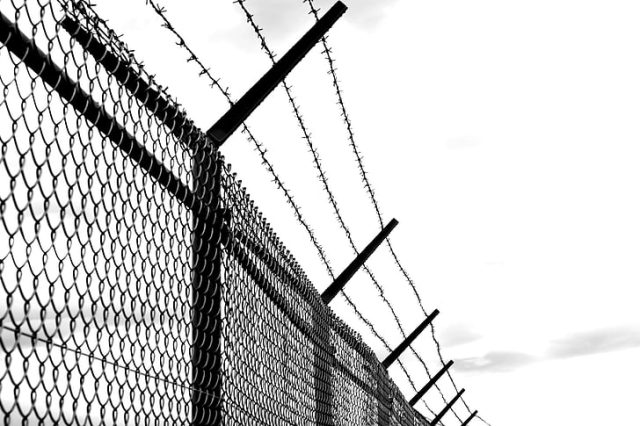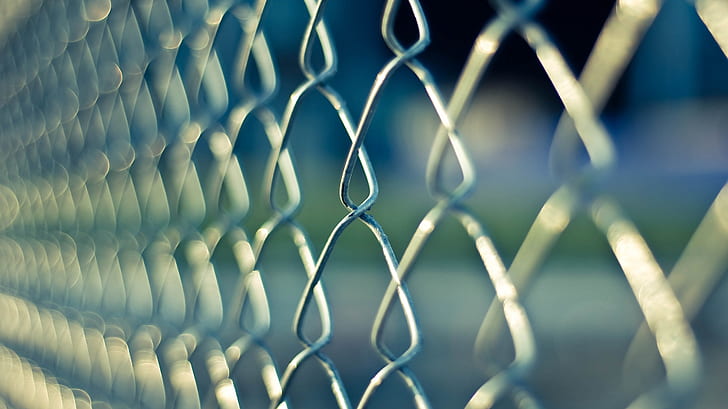
The Baltics appear to be a new route for migrants from the Middle East. Lithuanians in particular see immigration as a threat, and any group of migrants, even from the geographically closest countries, are treated with caution. According to a recent survey, a third of the population considers the impact of immigration on the country’s development to be negative and Latvian society still has a moderately unfavourable attitude towards immigrants.
Lithuania has built a wall on its border with Belarus to stop mass illegal migration
Lithuania has already completed work on the steel wall on the border with Belarus to stop mass illegal migration from the country, while Latvian authorities seem to have a hesitant stance towards taking such a drastic measure, although according to a survey conducted by Latvian sociologists in 2019, a significant part of the population showed favourable views in this direction. The tens of thousands of people, mostly from the Middle East, who forced their way across Belarus’ borders last year targeted not only Lithuania but also two other EU member states, Poland and Latvia.
While in the midst of the crisis, in August 2021, the Lithuanian authorities announced the construction of a wall on the border with Belarus, those in Riga confined themselves to instituting a state of emergency in several regions in the south-east and south of the country, close to the border with Belarus.
An attitude more in favour of more drastic measures towards Belarus – from tightening EU sanctions to building a wall at the common border – as a solution to stop the waves of migrants is revealed by a study on perceptions of migration and immigrants in Latvian society conducted last year by the Institute of Philosophy and Sociology of the University of Riga. It is worth noting that this study compares Latvians’ attitudes towards the authoritarian leader Alexander Lukashenko with their stance on these measures against Belarus.
Half of Latvians have a negative attitude towards Belarusian President Aleksandr Lukashenko
More than half of Latvians have a negative attitude towards Belarusian President Aleksandr Lukashenko, who has openly threatened to send migrants from war-torn countries such as Syria, Afghanistan and Iraq in retaliation for sanctions imposed by the European Union for serious human rights violations in Belarus, according to the survey. But there is also a Latvian minority who believe that the regime in Minsk is not guilty of organising illegal immigration to EU countries.
Latvian researchers argue that the population’s negative attitude towards immigrants has not changed over the past 20 years.
According to the study’s authors, who compared the recent survey figures with the results of other barometers conducted over the past two decades, Latvian society still has a moderately unfavourable attitude towards immigrants. In the questionnaires conducted in 2021, almost a third of respondents – 26% – showed a very unfavourable attitude towards immigrants. According to the study’s authors, this attitude is due to numerous stereotypes about them. Immigration is often seen as a threat, and any group of immigrants, even from the most geographically proximate countries, is treated with caution, say the study’s authors. However, attitudes towards immigrants have improved over the past 13 years and become more polarised. People now tend to associate immigrants less with crime or threats to the labour market and more with the belief that they are a burden on the health insurance system, they say.
A significant percentage of the population believes that the issue of immigration does not matter in a political debate
According to sociologists in Riga, a significant part of Latvian society today would prefer to keep its distance from immigrants. The socio-demographic analysis revealed a common pattern – anti-immigrant sentiment is specific to Latvian men over 55 with modest incomes. Unlike the rural population, where ethnic fragmentation is less prevalent and dominated by ethnic Latvians, the urban population is more open to immigrants, the Latvian researchers point out. Survey results from last year show that the percentage of Latvians who are most afraid of a neighbouring immigrant or foreign worker is the same as in 1990, at around 30%, after falling to just 10% in 1999 and then rising to 21% in 2008. Also, about a third of the population see the impact of immigration on the country’s development as negative. At the same time, most Latvians – 58% believe it is neither positive nor negative, and 10% see it as positive.

On the question of Latvians prioritising employment over immigrants, an overwhelming proportion of those surveyed last year agreed with this approach, while only 9% were at the opposite end of the spectrum and 18% had no opinion. According to the survey results, 59% of Latvians believe that the immigration issue matters little or not at all. When asked “If you were to vote for Parliament tomorrow, how important is the party’s position on the immigration issue?”, 15% say it doesn’t matter at all, and 44% – that it matters a little. For 41% of Latvians, the issue would matter a lot, according to last year’s poll.
Majority of Latvians want tougher border control and a wall on the border with Belarus
A majority of Latvians want tougher border controls and a tougher visa regime as a solution to stop migration. A significant proportion of Latvians – 62% – believe that border control and visa regime should be tightened, and an almost equal proportion – 60% – believe that immigrants contribute to an increase in crime and terrorist threats.
A significant proportion of Latvians favour sanctions against Belarus and drastic measures, such as building a wall at the common border – as a solution to stop illegal immigration from that country. It should be noted that the poll measured people’s attitudes towards the authoritarian leader of Belarus, Alexander Lukashenko, and correlated this attitude with their stance on certain measures to prevent massive immigration from Belarus. According to the Latvian researchers who authored the study, the survey data shows an inverse relationship between attitudes towards Lukashenko and attitudes towards possible measures to stop migration from Belarus. In other words, the more positive the attitude towards the authoritarian leader, the weaker the support for building a wall on the border with Belarus or tightening EU sanctions against the country, the study authors say.
In figures, 56% of Latvians have a negative attitude towards Lukashenko and would therefore support tougher EU sanctions against Belarus, while 78% would support building a wall on the common border, according to the survey. According to Latvian researchers, one conclusion of the data collected would be that there is a Latvian minority that approves of Lukashenko and that they do not believe that Belarus would be guilty of organising illegal migration at the common border.
The migration route through north-eastern Europe is in fact an adaptation of those who coordinate the flow of migrants and enrich themselves at the expense of those who want to reach European countries that offer a greater degree of social security. The traditional routes along the Turkey-Greece-Bulgaria-Hungary route are no longer so well developed as a result of the tightening of border controls. Even if the route through Latvia is longer and more risky for migrants, they know that it is much easier to reach Germany, a country with a well-developed social system, a country that offers migrants much more facilities than the rest of Europe.



 Subscribe
Subscribe